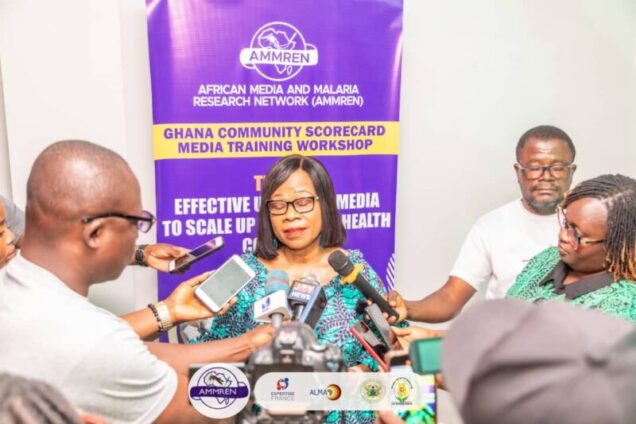Journalists across Ghana are being equipped with the tools and knowledge to play a critical role in enhancing healthcare delivery through the Community Scorecard (CSC) initiative.
Under the theme, 'Effective Use of the Media to Scale Up Universal Health Coverage,' the training—organised by the African Media and Malaria Research Network (AMMREN), the Ghana Health Service, the African Leaders Malaria Alliance (ALMA), and the Ministry of Health—aims to empower journalists to become key advocates for better health outcomes in the country.
The project is funded by Expertise France as part of ongoing efforts to strengthen community participation in health services.
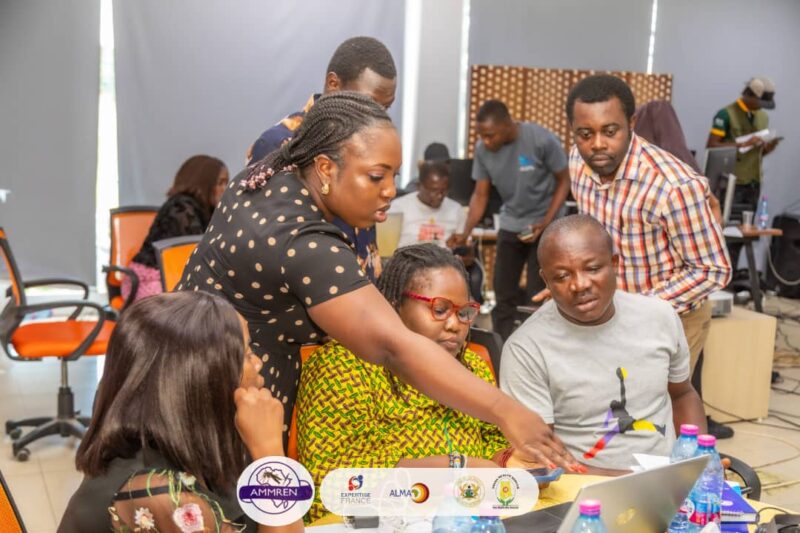
After completing the workshop, the selected journalists will be instrumental in disseminating accurate information about the Ghana Community Scorecard to the public.
This scorecard serves as a vital tool to track the performance of health services in various communities, promoting transparency and accountability.
Media as the Voice for Better Health Delivery
The Executive Director of AMMREN, Dr Mrs Charity Binka, emphasised the essential role journalists play in bridging the gap between healthcare providers and the communities they serve.
She pointed out that the current gap in understanding and accessing health services is too wide, and the media has a critical role in closing this divide.
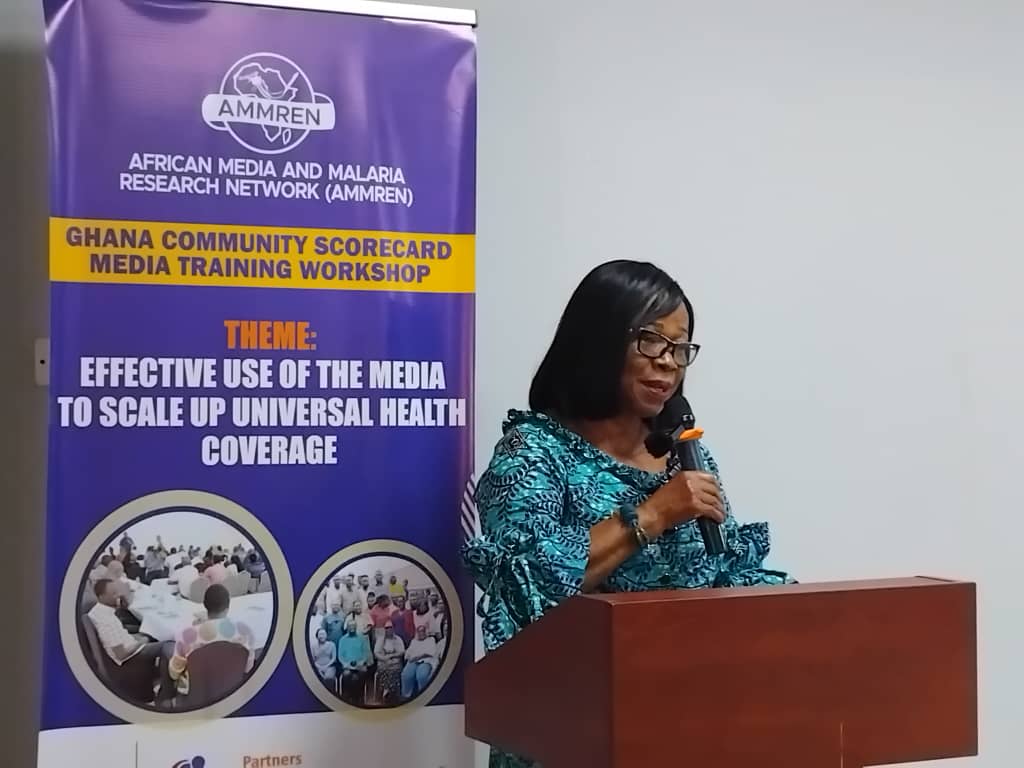
She called on the media to become the "voice" of healthcare, particularly in driving awareness around the Community Scorecard.
According to Dr Binka, for Ghana to achieve Universal Health Coverage (UHC) by 2030, journalists must be equipped to engage with health-related issues effectively and report on them responsibly.
"There is much work to be done to achieve UHC by 2030," she stated. "The media must step in, not only to educate the public but to also hold relevant stakeholders accountable for the services provided. Journalists have a unique role in bringing the real issues on the ground to the forefront, ensuring that the public receives the healthcare they deserve," she said.
Bridging the Gap Through Accountability
Dr Binka further highlighted the importance of training journalists to immerse themselves in local communities.
"Journalists need to be at the forefront, going to the communities, identifying the healthcare challenges, and helping bring healthcare solutions directly to the people’s doorstep," she said.
"By holding stakeholders accountable, journalists can use the scorecard to rate how well healthcare services are being delivered and expose gaps where improvement is needed."
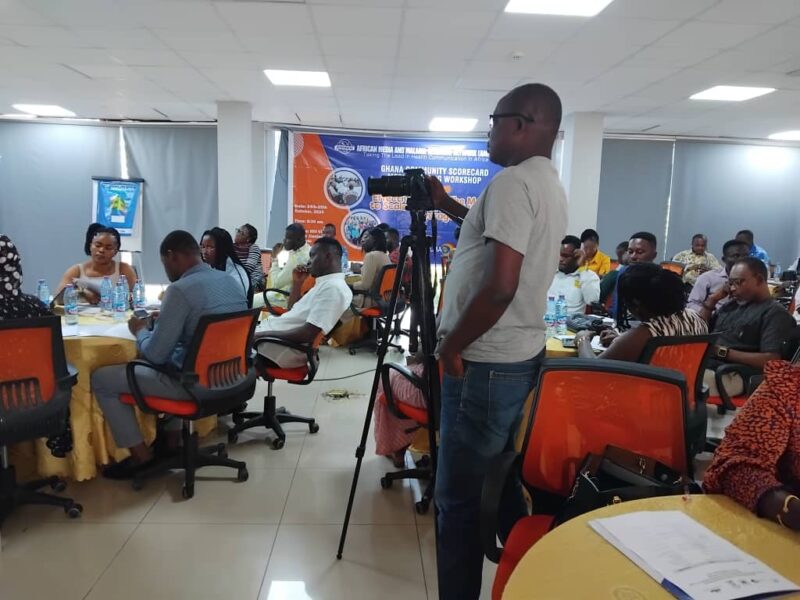
The Community Scorecard project is designed to give citizens a voice in evaluating healthcare services in their areas, providing feedback that can influence policy changes and service improvements.
Dr Binka stressed that the media’s role is indispensable in ensuring that the scorecard’s findings reach both the general public and decision-makers.
Empowering Journalists for Action
The Deputy Biostatistic Officer and National CHPS Data Manager at the Policy, Planning, Monitoring, and Evaluation Division of the Ghana Health Service, Divine Kwame Amanieh, underscored the importance of the workshop for both the media and the Ghana Health Service.
He expressed optimism that journalists would leave the training better equipped to report on healthcare issues and contribute to improving service delivery.
"The Community Scorecard is a powerful tool that can enhance healthcare delivery in Ghana. Journalists who are well-informed and skilled in reporting on these issues will be crucial in driving improvements in our health system," Mr Amanieh remarked.
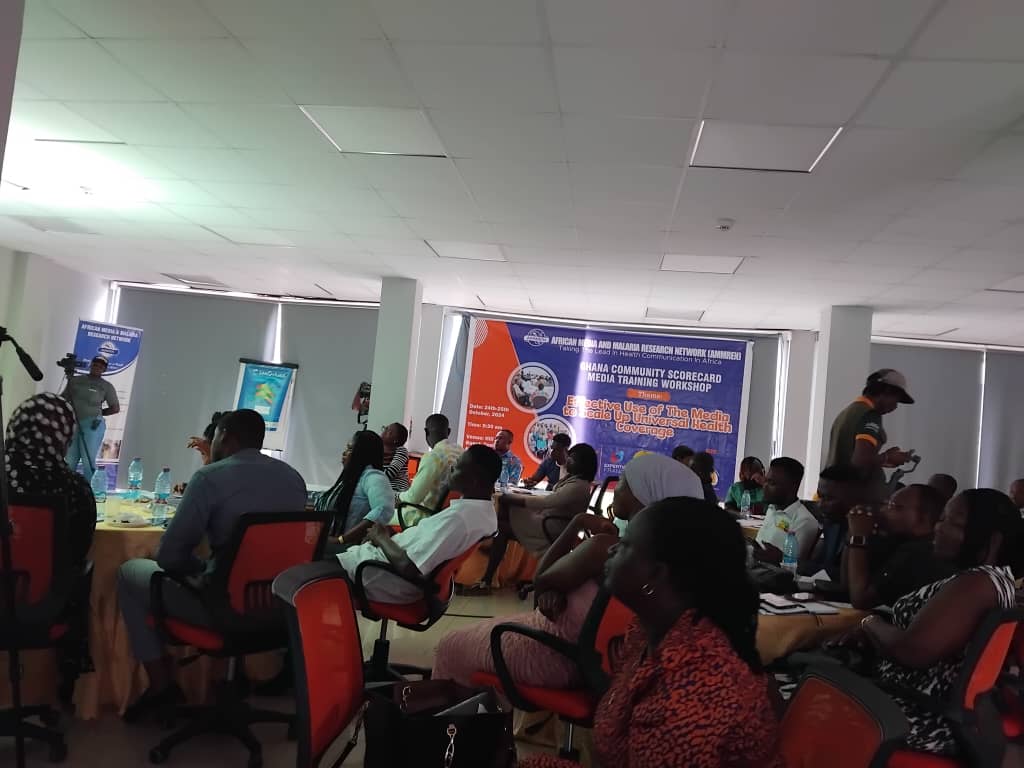
As the training continues, it is expected that journalists will take up the mantle of advocacy, working closely with health officials, communities, and stakeholders to foster a transparent, responsive, and inclusive healthcare system.
The ultimate goal is to scale up efforts toward achieving Universal Health Coverage by 2030, ensuring that all Ghanaians have access to quality healthcare services.
The workshop, funded by Expertise France, marks a significant step toward making healthcare delivery in Ghana more effective, transparent, and community-focused.
Through their training, journalists will become champions for health, using their platforms to highlight both the successes and shortcomings of healthcare services across the country, ultimately contributing to a healthier Ghana.
Latest Stories
-
‘Expired’ rice scandal: FDA is complicit; top officials must be fired – Ablakwa
21 mins -
#TheManifestoDebate: We’ll provide potable water, expand water distribution network – NDC
39 mins -
IPR Ghana@50: Pupils educated to keep the environment clean
45 mins -
PenTrust CEO named ‘Best Pensions CEO’, company wins ‘Scheme Administrator Award’ at Ghana Accountancy & Finance Awards 2024
1 hour -
Alan Kyerematen’s ‘Brighter Future for Health Professionals’ in Ghana Revealed in Bono
1 hour -
#TheManifestoDebate: NPP will ensure a safer, cleaner and greener environment – Dr Kokofu
1 hour -
2024 Election: Police to deal with individuals who will cause trouble – IGP
1 hour -
Seychelles President’s visit rekindles historical and diplomatic ties with Ghana
2 hours -
Election 2024: EC destroys defective ballot papers for Ahafo and Volta regions
2 hours -
2024 Election: I am sad EC disqualified me, but I endorse CPP’s candidate – PNP’s Nabla
2 hours -
I want to build a modern, inclusive country anchored by systems and data – Bawumia to CSOs
2 hours -
Miss Health Ghana 2024: Kujori Esther Cachana crowned new Health Ambassador
2 hours -
Playback: The manifesto debate on WASH and climate change
2 hours -
Alan Kyerematen saddened by NDC and NPP’s neglect of Krofrom Market in the Ashanti Region
2 hours -
CSIR Executive Director urges farmers to adopt technology for improved farming
3 hours

